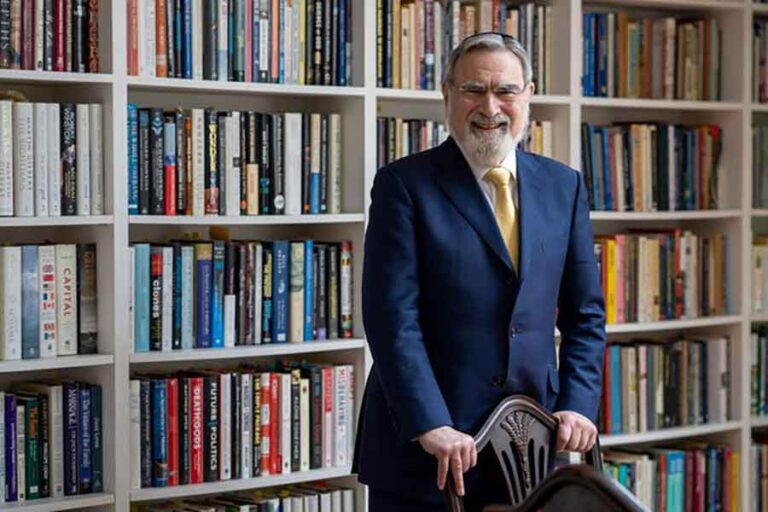G-d, not Joseph, brought about the sequence of events – specifically Pharaoh’s dreams – that led to his release.
What we want to happen, happens, but not always when we expect, or in the way we expect, or merely because we wanted it to happen. G-d is the co-author of the script of our life, and sometimes – as here – He reminds us of this by making us wait and taking us by surprise.
That is the paradox of the human condition as understood by Judaism. On the one hand we are free. No religion has so emphatically insisted on human freedom and responsibility. Adam and Eve were free not to sin. Cain was free not to kill Abel. We make excuses for our failures – it wasn’t me; it was someone else’s fault; I couldn’t help it. But these are just that: excuses. It isn’t so. We are free and we do bear responsibility.
Yet, as Hamlet said: “There’s a divinity that shapes our ends/Rough-hew them how we will.” G-d is intimately involved in our life. Looking back in middle or old age, we can often discern, dimly through the mist of the past, that a story was taking shape, a destiny slowly emerging, guided in part by events beyond our control. We could not have foreseen that this accident, that illness, this failure, that seemingly chance encounter, years ago, would have led us in this direction. Yet now in retrospect it can seem as if we were a chess piece moved by an invisible hand that knew exactly where it wanted us to be.
It was this view, according to Josephus, that distinguished the Pharisees (the architects of what we call rabbinic Judaism) from the Sadducees and the Essenes. The Sadducees denied fate. They said G-d does not intervene in our lives. The Essenes attributed all to fate. They believed that everything we do has been predestined by G-d. The Pharisees believed in both fate and freewill. “It was G-d’s good pleasure that there should be a fusion [of Divine providence and human choice] and that the will of man with his virtue and vice should be admitted to the council-chamber of fate” (Antiquities, xviii, 1, 3).
Nowhere is this clearer than in the life of Joseph as told in Bereishit, and nowhere more so than in the sequence of events told at the end of last week’s parsha and the beginning of this. Without Joseph’s acts – his interpretation of the steward’s dream and his plea for freedom – he would not have left prison. But without Divine intervention in the form of Pharaoh’s dreams, it would also not have happened.
This is the paradoxical interplay of fate and freewill. As Rabbi Akiva said: “All is foreseen yet freedom of choice is given” (Avot 3:15). Isaac Bashevis Singer put it wittily: “We have to believe in freewill: we have no choice.” We and G-d are co-authors of the human story. Without our efforts we can achieve nothing. But without G-d’s help we can achieve nothing either. Judaism found a simple way of resolving the paradox. For the bad we do, we take responsibility. For the good we achieve, we thank G-d. Joseph is our mentor. When he is forced to act harshly, he weeps. But when he tells his brothers of his success, he attributes it to G-d. That is how we too should live.

